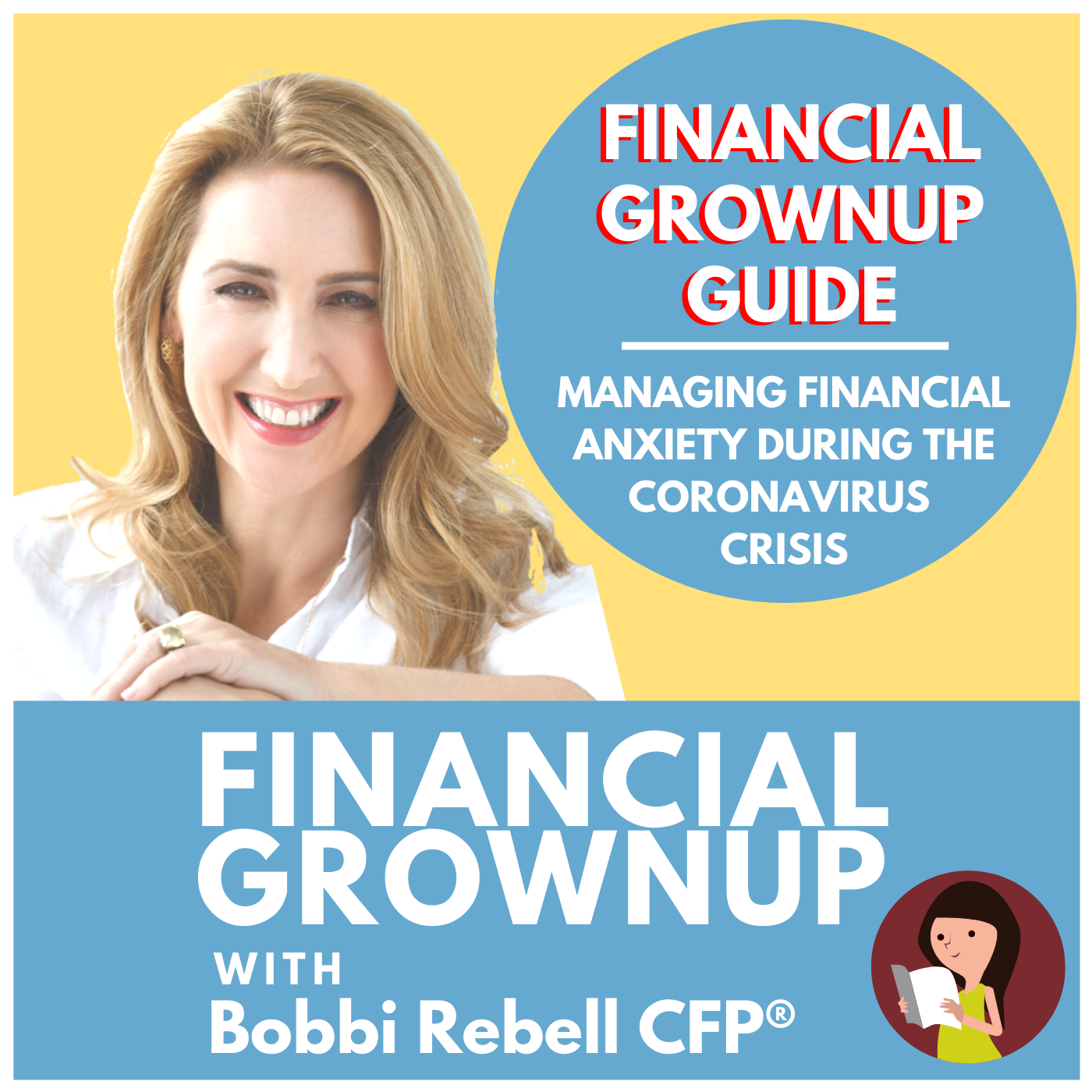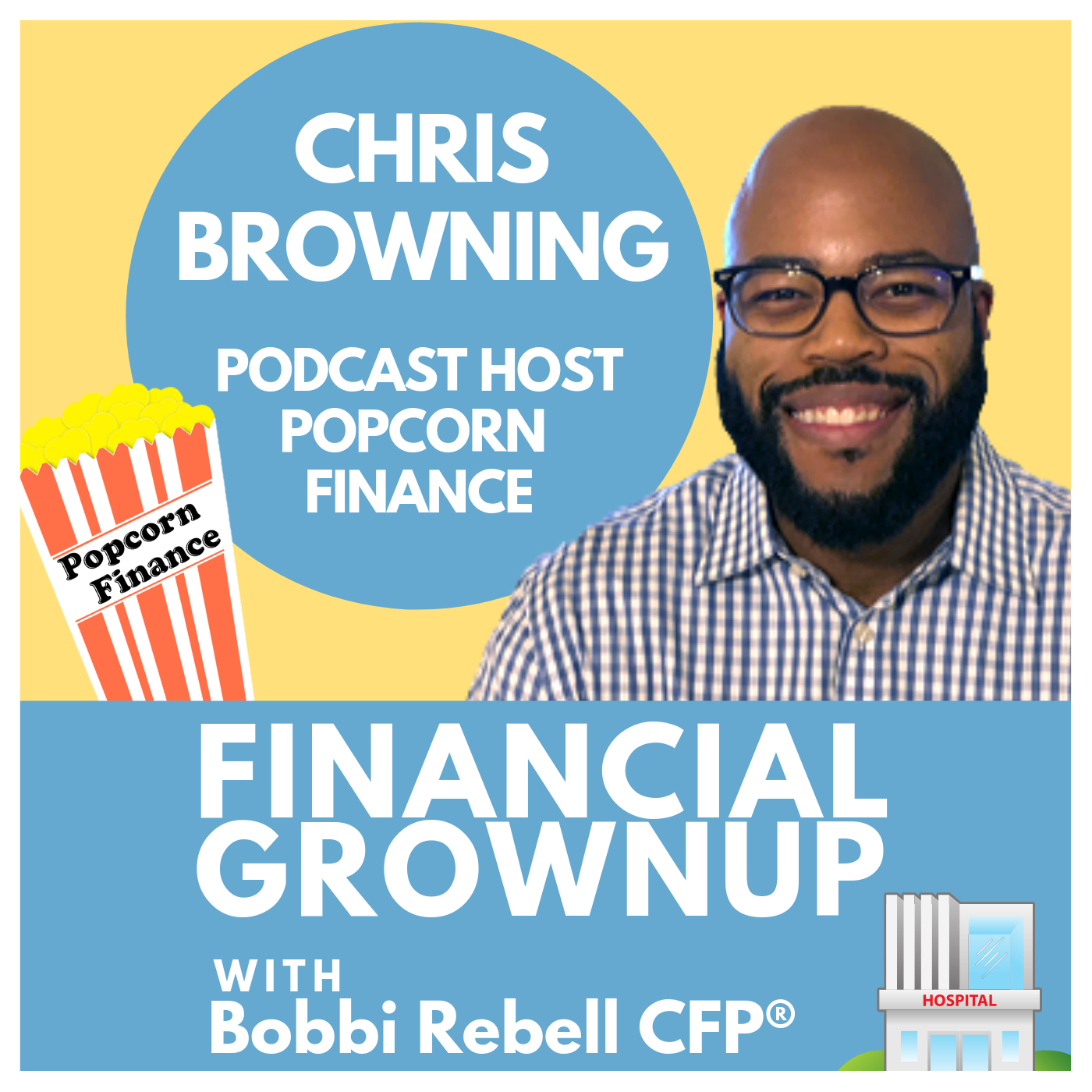Naseema McElroy candidly shares her experiences paying off debt and building a financial foundation, and how that journey allowed her to break free from both a toxic work environment and an abusive relationship.
Naseema’s Money Story:
Naseema McElroy:
When I started on this journey, I was single. I was a single mom with my daughter, and as I was starting to pay down debt, I did get married. It was a very short marriage because it was abusive. He ended up having to go to jail. And then I had to go through that divorce process. But if I hadn't had my finances in order during that process, it could have dragged out. I could have stayed in that relationship because of financial dependency. And so I thank God that I was already on that journey so I could step away.
Naseema McElroy:
Shortly after that, I transitioned to a different facility for the same organization that I was working for and was experiencing and witnessing a lot of medical malpractice, especially in regards to maternal morbidity, not to the point of mortality, but almost.
Bobbi Rebell:
Can you explain what you mean by that?
Naseema McElroy:
Yeah. In this country, we have higher rates of black women dying and being seriously injured from just giving birth. And it's very prevalent in certain areas. And in this particular hospital I was working with, it was prevalent and I was speaking up against it. That wasn't well accepted or received.
Bobbi Rebell:
What was happening? They weren't getting good medical care? Tell us more about that, because that is something that we don't know about. I want to know more about that.
Naseema McElroy:
Yeah. So it's very common and that's probably why I'm not being as specific as you want because everybody knows this, right?
Bobbi Rebell:
No. Are they not getting the right? I mean, look, we're both moms, are they not getting the right medical care? And why? Is it a cost cutting decision in the hospital? What is going on? What's not happening?
Naseema McElroy:
It's implicit bias. It's just the way that you handle two different patients, right? So I'll give you an example. I have a mom that's in labor. She's trying to have a vaginal delivery after she had a C-section, which has serious implications, has to be monitored carefully. She's telling me that she's having a lot of pain and I'm prepping her to go to the OR. This doesn't feel right, let's go. The attending walks in the room and she's like, "Oh, so you're in pain now? You're in actual pain now because you're actually in labor and this is what you wanted." So instead of doing the C-section right then, she waited hours to do the C-section, went and did the C-section. And then the baby was hanging out of her uterus with both her and her baby could have died.
Naseema McElroy:
So these things were happening over and over again, over a short period of time. And when I spoke up about it, I was basically told to shut up, and I didn't know what I was talking about. And I had been a labor and delivery nurse for years and had never had my judgment questioned. And so I know that that was an environment that I had to leave because I already tried to speak out. But I was at a position financially where I didn't have to have that job, and so I left. And then when I left in the back end, I did some actions in order to make sure that they corrected their mistakes.
Bobbi Rebell:
Thank God for that. So you had the choice to leave this horrific job environment, which by the way, thank you for speaking up so candidly, and thank you for following up after you left. Because I know that probably many women benefited, families benefited, children benefited from that. In terms of you, because we want to focus on you on this podcast, you had the financial freedom. So tell us the steps that you went through. You had the financial freedom to leave an abusive relationship. And by the way, divorce is never cheap, as we know.
Naseema McElroy:
Even for that short amount of time. Yeah.
Bobbi Rebell:
Oh, it's almost many divorces last more than marriages. But also leaving so many people are stuck in jobs that they're trapped because they don't have the finances to have the freedom to leave. Tell us, what were you doing specifically, you had $200,000 of student debt and other debt you've alluded to. How did you get control of that so that you could leave both an abusive relationship and a toxic job?
Naseema McElroy:
Well, ironically, I thought it was because I didn't know how to invest my money and that's why I wasn't good with money, and I always thought that investing took like this college degree to learn how to do. And so, I listened to podcasts. I had a long commute and so I Googled investing podcasts and stumbled upon Dave Ramsey, ironically. So I actually started listening to Dave Ramsey and followed his baby steps to start getting out of debt, and that helped me accelerate my debt pay off. And so in just two years, I was able to pay off most of my student loans. Then I was going through my divorce at that time. And then during that divorce, I had to pay, I forgot, $20,000 in debt towards, well, it was basically a car that I had paid off. But anyway, I had to pay my husband, even though it was an abusive relationship, he was in jail. They don't care, so I had to pay him.
Naseema McElroy:
And then, because of the way I was doing and following Dave Ramsey's plan, because I was gung ho, I had a $30,000 IRS debt. So I was almost finished paying off all my debt. And that's just snowballing. I did sell a house in the beginning of the process. That helped accelerate that process, but it was just debt snowballing, zero based budgeting my way. And then finally at the end of it, I had a choice to sell my house and, and people are like, why would you sell your house? I had to really think about this. It's like, a lot of stuff happened in that house, especially with my marriage. And so I was able to walk away from that house pretty easily, even though it was a really nice house. And so I sold my house at the end when I had about $50,000 left in debt and then that cleared out everything.
Naseema McElroy:
And so that's all the debt that I paid off. And so all that stuff took place over a matter of three years. And then at the end of those three years, when I sold my house, I moved, I relocated back to my hometown and that's where I was in that toxic work environment. But at this point I was like, I was on wealth accumulation instead of debt payoff. And so I actually stepped back and only went down to working six days a month. And that was a freedom that I had.
Naseema McElroy:
So financial freedom is not about reaching like this fire number that you might hear out there. It's about the levels of independence that you get to take along the way. And my independence was being able to spend time with my family, be free from this toxic work environment, be out of that bad relationship, be able to recover from all the stuff that happened to me over the years and only work six days a month and still make a pretty good living.
Naseema’s Money Lesson:
Naseema McElroy:
The money lesson is being intentional with your finances unlocks levels of freedom in your life for you to live your life by intention, to be able to walk away from those things.
Naseema’s Money Tip:
Naseema McElroy:
For me, I like nice things. And so I don't skimp on my cars for example. I drive a Tesla. During the whole process of me paying down debt, I took my daughter to Disneyland every other month, but that was super important to me, but it was part of my budget. And so it still fits within whatever financial goals I have, but I don't live in deprivation.
Bobbi’s Financial Grownup Tips:
Financial Grownup Tip #1:
Naseema created choices when she needed them, because she had made the grownup decision ahead of those situations to get control of her finances. Don't wait for the rainy day to have that umbrella handy, guys.
Financial Grownup Tip #2:
As Naseema said, Teslas are pricey, but you know what? If you want an electric car, which will allow you of course, to save on gas and be better for the environment, don't forget there are many other electric cars out there to choose from. Happy shopping.
Episode Links:
Naseema’s website - www.financiallyintentional.com/
Follow Naseema!
Instagram - @financiallyinte
Twitter - @financialintent
Facebook - @nursesonfire
Some of the links in this post are affiliate links. This means if you click on the link and purchase the item, I will receive an affiliate commission at no extra cost to you. All opinions remain my own.



















